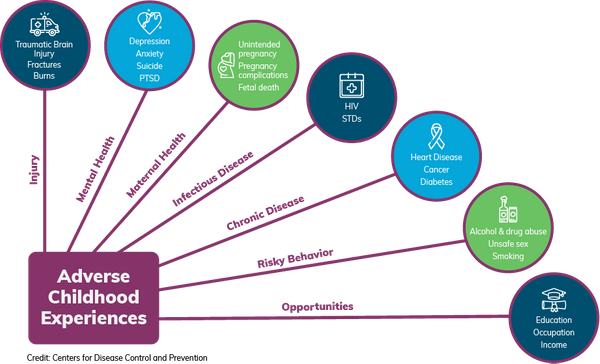I get this question a lot from clients who come to see me. They'll ask, "why bother with the past? Why can't I just bury it in the ground and forget about it?" And I respond with, "it's not so easy." I wish I could give them a pill or have them do a series of exercises. I wish there were an easy bypass, but there isn't. The way out is through.
If someone is coming to me with anxiety and panic or bouts of depression, it is because they have things from the past that have not been worked through. They still live in beliefs about themselves or the world that were formed at an early age and that still rule their lives.
For me, it isn't the adverse things from childhood that are the hardest part. Really, the hardest part is the meaning and beliefs we make from these experiences that we carry forward. Yes, of course, the abuse and neglect were horrible and undeserving. We were only innocent and helpless children after all. I do recognize the pain and hurt. And I have a watchful eye on the shameful beliefs and the distortions about ourselves that remain.
Dan Siegel, one of the foremost trauma therapists in the world, puts in very simply. If we don't resolve what happened to us, we are destined for struggle and hardship. The mother who was sexually abused will not have the capacity to connect with her baby. The husband who was raised by a critical mother will withdraw or rage under stress in the marriage. The adult male who was threatened when he was willful as a child will feel stuck and unmotivated. Or the woman who shuts down and isolates when feeling threatened and can't trust our impulse to ask for help and comfort.
Yes, the past if left unexamined and unresolved will play out inside of us. And the dysfunctional dynamics with your parents will play out in your current relationships (especially our intimate relationships). If we can find a way of untangling the part of us stuck in the legacy of old trauma (what I call child consciousness), we can liberate ourselves from self-limiting beliefs and enter into a life of authentic expression, connection, and happiness.
One of the most impactful and profound studies in the last 50 years is known as the ACES study. This research bore out the connection between adverse childhood experiences and addiction, anxiety, stress and depression later in life. Not to mention the negative impact that trauma in our early years has on our physical health: Diabetes, heart disease, premature death. For me, there is no clearer demonstration of how vital it is for us to move past old patterns and hurts for both our own mental and physical wellbeing and for the relationships we hold most dear.

